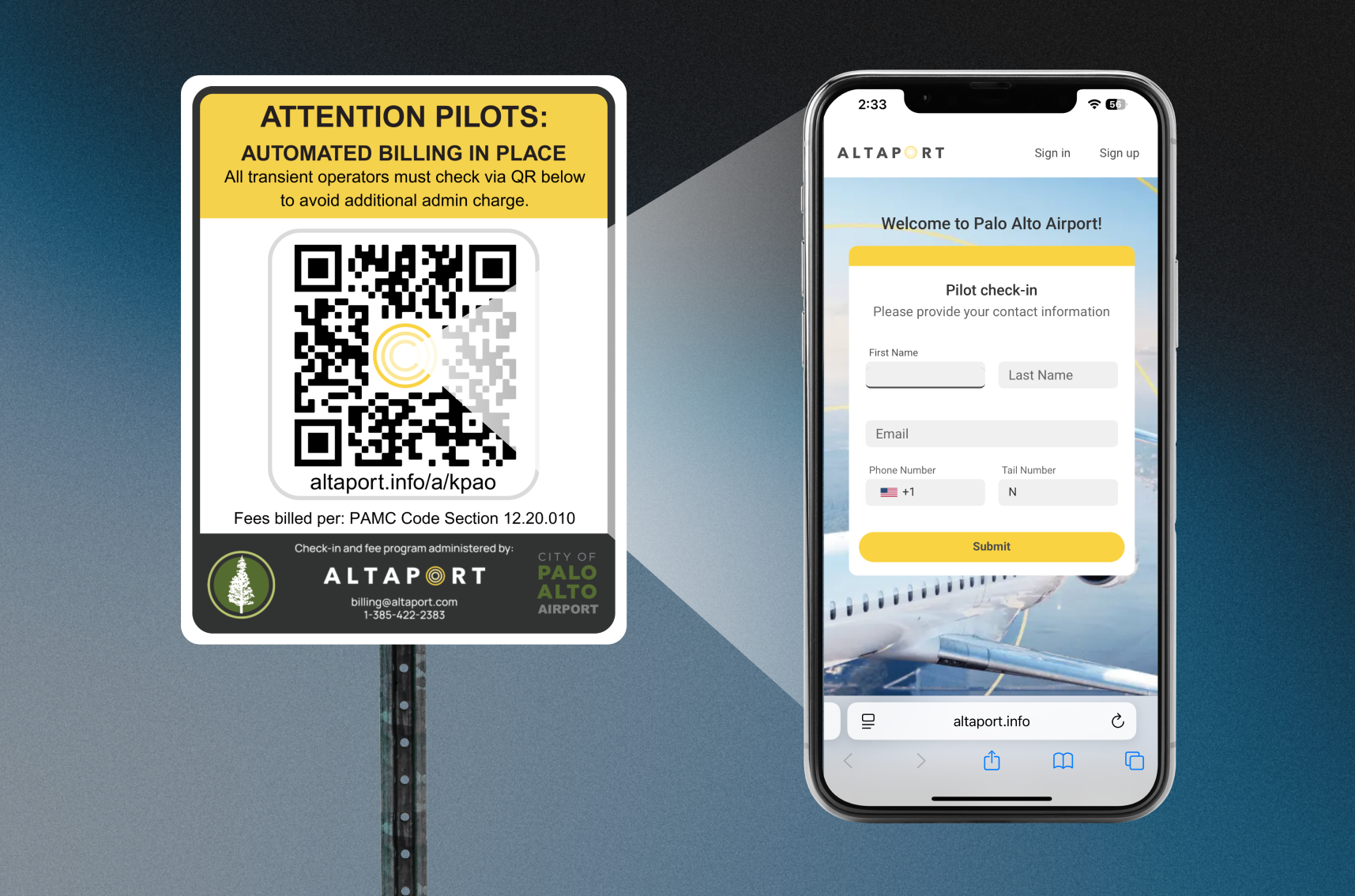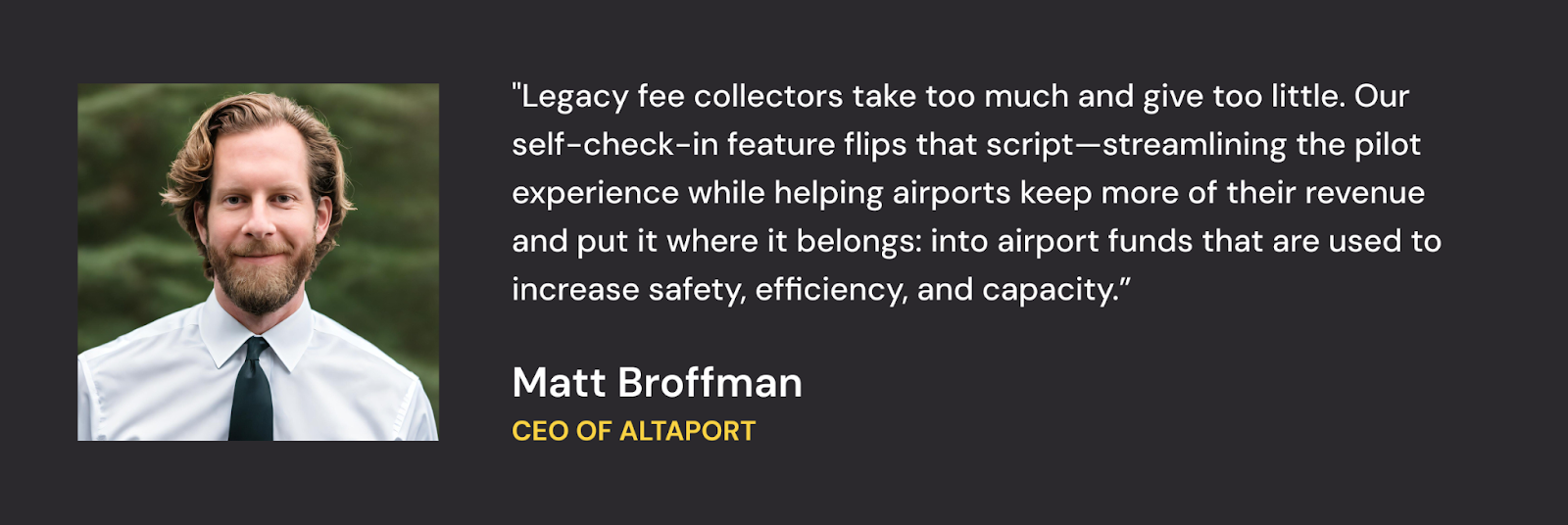
In an era where every dollar counts and pilot expectations are rising, how effectively is your airport managing transient aircraft? For too long, managing transient operations and collecting transient usage fees has been a manual, costly, and inefficient headache, with legacy systems taking a significant cut while offering little in return.
Altaport is here to flip that script. We're proud to introduce our Pilot Self-Check-In feature, a groundbreaking solution designed to simplify transient operations management, dramatically increase your airport's cost recovery, and elevate the entire pilot experience.
"Legacy fee collectors take too much and give too little,” said Matt Broffman, CEO of Altaport. “Our self-check-in feature flips that script—streamlining the pilot experience while helping airports keep more of their revenue and put it where it belongs: into airport funds that are used to increase safety, efficiency, and capacity.”

Transient landing and parking fees serve as an essential tool for airports to recover costs fairly and equitably. Without them, most of the cost-recovery burden is placed on the based aircraft and tenants. However, staffing airport desks, taking credit card payments, and after-hours operations made it difficult for airports to collect landing and parking fees efficiently or cost-effectively.
Altaport’s new self-check-in feature helps automate the entire check-in experience by providing pilots with a fast and frictionless way to check in, communicate with the airport, and pay directly from their mobile devices—simply by scanning a QR code on the ramp. The process is instant, transparent, and seamlessly integrated into our broader Transient Operations Management System, making it easier than ever for airports to engage pilots in real time and capture otherwise missed revenue.
Altaport offers self-check-in at just a 5% revenue share—up to 70% more cost-effective than legacy systems, which charge as much as 25% of fees collected. This means that more fee revenue stays with your airport, where it can be reinvested into the facilities, services, and safety improvements that matter most.
While ADS-B is a valuable tool for follow-up and enforcement, any effective airport fee collection system should begin by giving pilots a straightforward, upfront way to check in and self-pay. When offered a simple, cost-effective option, most pilots are happy to pay on their own—no mailers or enforcement required. Altaport’s self-check-in is the first step in that journey. Then, where technologies like ADS-B, cameras, or logs are available, we use them intelligently to follow up with those who haven’t checked in—maximizing compliance and ensuring cost recovery applies fairly across all operators.
Pilots gain instant access to airport details, including services, local info, and usage fees, directly from their phones. They can pay securely or request exemptions for missions like Angel Flights or Life Flights, all without involving airport staff. Airports can also leverage the cost savings from Altaport to offer pilot discounts for self-check-in, creating a positive, transparent experience that strengthens airport-operator relationships.
Traditional dropboxes and legacy tolling systems limit the fee flexibility airports can offer. With Altaport’s automated check-in, airports can unlock new options—such as weekly and monthly transient ramp passes or integrated automobile parking payments—creating a more convenient and tailored experience for pilots and operators.
Upon check-in, airports can share curated links to local businesses, restaurants, FBO services, or ground transportation. This simple interaction turns a transactional process into an opportunity to support the local economy.
Automating the check-in and fee collection process reduces manual work for airport staff, minimizes errors, and allows your team to focus on what matters most—improving service, safety, and long-term planning.
Altaport’s Pilot Self-Check-In is already live at leading airports, including:
Each of these airports is seeing firsthand the benefits of moving to a more innovative, self-service model.
As the aviation industry prepares for transformative shifts, such as Advanced Air Mobility and increased private aircraft utilization, airports must modernize their interactions with transient aircraft. Altaport’s Pilot Self-Check-In feature is a step toward that future: one that’s more efficient, more pilot-friendly, and far more financially sustainable.
Schedule a demo and lock in our 5% rate—we'll create your check-in page and design your airport signage at no setup cost.
